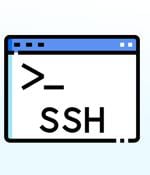Security News

What are the primary factors contributing to the cybersecurity skills gap? Are there specific areas within cybersecurity that are more affected than others? Several factors across the technology industry are responsible for the cybersecurity skills gap, including lack of representation and diversity, and insufficient training opportunities given the rapid evolution of cybersecurity threats and tools.

A new OpenSSH unauthenticated remote code execution vulnerability dubbed "RegreSSHion" gives root privileges on glibc-based Linux systems. Exploitation of regreSSHion can have severe consequences for the targeted servers, potentially leading to complete system takeover.

OpenSSH maintainers have released security updates to contain a critical security flaw that could result in unauthenticated remote code execution with root privileges in glibc-based Linux systems....

Your profile can be used to present content that appears more relevant based on your possible interests, such as by adapting the order in which content is shown to you, so that it is even easier for you to find content that matches your interests. Content presented to you on this service can be based on your content personalisation profiles, which can reflect your activity on this or other services, possible interests and personal aspects.

As announced last October, the internet company reminds us that 'root' AWS accounts must enable MFA by the end of July 2024. Passkeys on AWS. FIDO2 passkeys are physical or software-based authentication solutions that leverage public key cryptography to sign a challenge sent by the server used for verifying the authentication attempt.

Cisco has released patches for a high-severity Integrated Management Controller vulnerability with public exploit code that can let local attackers escalate privileges to root. "A vulnerability in the CLI of the Cisco Integrated Management Controller could allow an authenticated, local attacker to perform command injection attacks on the underlying operating system and elevate privileges to root," the company explains.

Multiple security vulnerabilities have been disclosed in LG webOS running on its smart televisions that could be exploited to bypass authorization and gain root access on the devices.The findings come from Romanian cybersecurity firm Bitdefender, which discovered and reported the flaws in November 2023. The issues were fixed by LG as part of updates released on March 22, 2024.

Your profile can be used to present content that appears more relevant based on your possible interests, such as by adapting the order in which content is shown to you, so that it is even easier for you to find content that matches your interests. Content presented to you on this service can be based on your content personalisation profiles, which can reflect your activity on this or other services, possible interests and personal aspects.

A 31-year-old Moldovan national has been sentenced to 42 months in prison in the U.S. for operating an illicit marketplace called E-Root Marketplace that offered for sale hundreds of thousands of...

Malicious local attackers can obtain full root access on Linux machines by taking advantage of a newly disclosed security flaw in the GNU C library (aka glibc). Tracked as CVE-2023-6246, the...